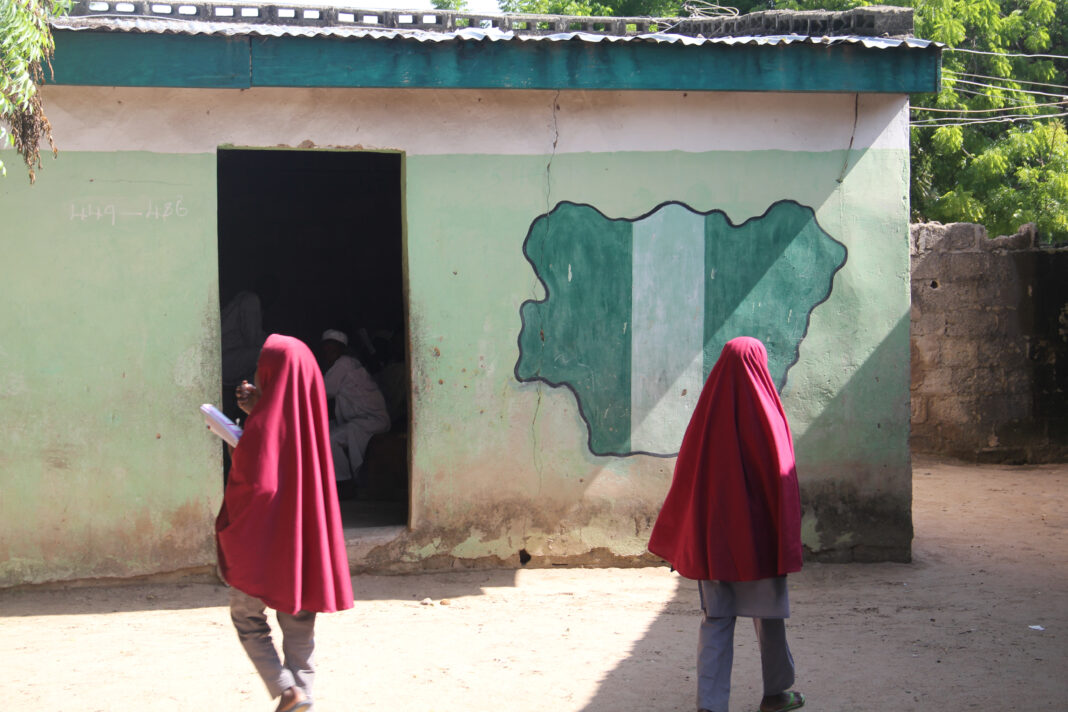by Higerta Gjergji
The Lafiya Sarari School in Maiduguri, the capital of Borno State, Nigeria, established in 2017 by the Neem Foundation, offers a lifeline to girls in crisis. Unlike traditional schools, Lafiya Sarari prioritizes the mental health and psychosocial needs of its beneficiaries. These beneficiaries are girls aged 11-14 from displaced communities and refugee camps in Nigeria and the Lake Chad Basin region – a place grappling with conflict and violence.
The school’s focus on mental health stems from the tragic kidnapping of 276 Chibok schoolgirls by Boko Haram in 2014. This incident, along with the abduction of 1,436 schoolchildren and teachers between 2020 and 2022, highlights the vulnerability of Nigerian students. Most recently, an attack on a Kaduna state school on March 7, 2024, saw nearly 300 boys kidnapped.
These events have triggered school closures, protests, and a decline in enrollment and attendance, particularly among girls. According to Amnesty International, this has led to an increase in early marriage and teenage pregnancy. With over 1,400 schools destroyed and 60% of out-of-school children in the Northeast being girls, access to education remains a critical challenge.
Lafiya Sarari School addresses this gap by providing a safe and supportive learning environment. Girls can focus on their studies, develop resilience, and gain crucial life skills. Once struggling with literacy, these girls are now expressing themselves confidently and inspiring their communities to prioritize education.
The program goes beyond academics by offering psychological support. This support tackles issues like depression, anxiety, grief, and the impact of violence (including drug abuse and sexual/domestic violence). Additionally, it addresses social transition challenges that can affect self-esteem, confidence, and identity. Through intervention, coping mechanisms, and expressive therapy, Lafiya Sarari equips girls with the tools they need to thrive.
Lafiya Sarari School serves as a beacon of hope for girls affected by conflict. It empowers them to learn, grow, and contribute positively to their communities. Falmata Mohammed Talba, a 20-year-old who greatly benefited from the daily therapy sessions at her school, decided to share what she learned with her two younger brothers who go to a public school.
Having witnessed their father’s murder by Boko Haram and then being held captive with their mother, Talba knew her brothers needed help coping with the trauma. “When I first started, I used to see her one-on-one almost every day for about six months. Sometimes, I would even run out of the class. Talking to the psychologist helped me a lot,” Talba says. “I helped my brothers the way Lafiya Sarari helped me. I tell my brothers, ‘This is what they told me. Why don’t you too start practicing it?’ That’s how they changed.”
A tutoring program designed to empower and inspire children and teachers has been introduced. The mentoring helps all beneficiaries develop vital skills such as communication, relationship building, networking, and leadership, and to receive support in making vital career and life decisions. Teachers are supported by teaching guides and lesson plans already developed by the Neem Foundation. The various educational materials, including books and puppets, promote interactive learning. Important topics, values, and concepts are taught through classic subjects such as mathematics and English.
These materials promote interactive learning and have an intrinsic impact on literacy and basic numeracy skills. In addition, teachers use the developed lesson plans to offer beneficiaries the opportunity to explore new ideas and express themselves. Ample time is provided for drama, art, and music play to allow children to reflect on and interact with ideas, and form and present their thoughts.
On the cover photo, a Success Private School, one of the first schools attacked by Boko Haram in Nigeria ©bmszealand/Shutterstock.com























